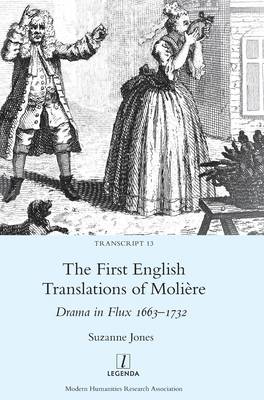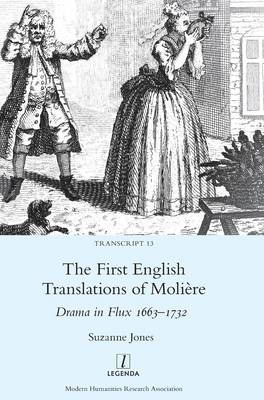
- Retrait gratuit dans votre magasin Club
- 7.000.000 titres dans notre catalogue
- Payer en toute sécurité
- Toujours un magasin près de chez vous
- Retrait gratuit dans votre magasin Club
- 7.000.000 titres dans notre catalogue
- Payer en toute sécurité
- Toujours un magasin près de chez vous
Description
As the most successful comic dramatist at the court of Louis XIV, Molière was certainly known to his London counterparts. During his early acting years in a touring troupe, the English theatres had been closed by the Civil Wars, but after 1660 viable plays were in great demand, and Molière was translated almost at once. Dryden, Behn, Fielding and many others took him up. All the same, his plays only began to be printed in English as immutable classics from around 1732 when a landmark edition was published in parallel text. Even then, English writers felt able to offer other translations that were free in their handling of the source material.
The result, as Jones shows in her ground-breaking study, was a rich diversity of translation practices, and an influx both of new vocabulary and new cultural currents. She ranges from theories of plot formation, translation, and prosody to an analysis of lexical terms evoking contentious social themes: marital discord, religious hypocrisy, the medical profession, and social pretension.
Suzanne Jones is a researcher in seventeenth-century French drama, and a Teaching Fellow in French at Durham University.
Spécifications
Parties prenantes
- Auteur(s) :
- Editeur:
Contenu
- Nombre de pages :
- 218
- Langue:
- Anglais
- Collection :
- Tome:
- n° 13
Caractéristiques
- EAN:
- 9781781888391
- Date de parution :
- 28-09-20
- Format:
- Livre relié
- Format numérique:
- Genaaid
- Dimensions :
- 170 mm x 244 mm
- Poids :
- 548 g







